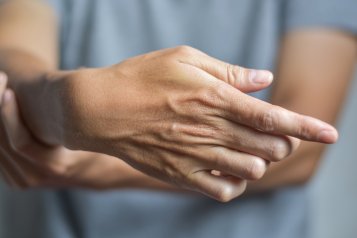What is Glaucoma?

The different types of glaucoma
There are several types of glaucoma. The most common is primary open angle glaucoma, where damage to your optic nerve happens slowly over a long period of time. The damage happens due to high pressure in your eyes (over 21mmHg). Other types of glaucoma include normal tension glaucoma, primary closed angle glaucoma and secondary glaucoma.
Look after your eyes
Here are some tips to help you look after your eyes:
Act early
The most common type of glaucoma doesn’t hurt and has no symptoms until it’s quite advanced. It can cause permanent sight loss if it goes undetected and untreated.
Get a regular eye test
The best way to look after your eyes is to have a regular eye test with an optician. An eye test is an important health check for your eyes and help detect glaucoma as early as possible so you can get treatment. You might be able to get a free eye test, click here to check if you’re eligible.
Talk about it
You’re more likely to develop glaucoma if you have a close relative, such as a parent or sibling, with the condition. It’s a good idea to ask your close family members if there is any family history of glaucoma. If you’re diagnosed with glaucoma, let your family know too. They may be at risk.
People with a family history of glaucoma may be eligible for a free eye test.
Managing your glaucoma medication
Glaucoma can be treated with eye drops, laser treatment or surgery to lower your eye pressure. Treatment depends on what type of glaucoma you have. Eye drops are the most common treatment.
- Create a daily routine: take your eye drops daily at the same time. Use phone reminders or link them to a routine, like brushing your teeth.
- Proper eye drop storage: follow the storage instructions on the label carefully to ensure effectiveness, and routinely check expiration dates.
- Easier use of eye drops: if you struggle with eye drops, consult your doctor or pharmacist for guidance. The RNIB Shop also has aids to help with application.
- Consistency is key: use eye drops, as prescribed, long-term to protect against future damage by controlling eye pressure, even if your vision seems unchanged.
- Communicate for better care: if you experience side effects or run out of medication, contact your healthcare provider or pharmacist promptly to stay on track.
A tip for carers
Be aware that making things bigger, like text, may not help and you may need to stand further away as there's a big misconception that bigger, bolder, brighter is better for everyone.
Get help with glaucoma
You can call us on 0303 123 9999 (8am-8pm weekdays and 9am-1pm on Saturdays). Our team of advisors are on hand to answer your questions and direct you to the help and support you need.
Speak to an Eye Care Liaison Officers (ECLO) at a hospital near you
ECLOs provide information, emotional support and advice if you have a condition which affects your sight.
They work in a variety of eye care locations, including hospitals and eye clinics.
If you’d like to contact an ECLO, visit Sightline Directory and search ECLO and your postcode, call us on 0303 123 9999 or email helpline@rnib.org.uk.
For more information on Glaucoma, transcripts of the video and other resources visit RNIB
The image used for this article has been supplied through Canva and has no direct link to the information


